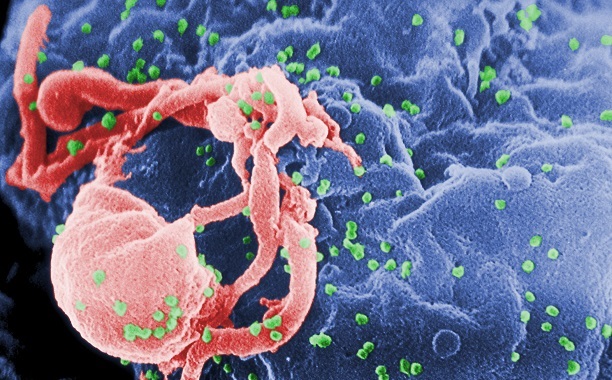Researchers have discovered an aggressive form of HIV, which a new smartphone device can test for in 15 minutes, in Cuba which rapidly progresses to full-blown AIDS in less than three years, compared to the five to ten years it takes on average.
HIV, which stands for human immunodeficiency virus, is a sexually transmitted infection which can also be spread through contact with infected blood, from a mother to a child through childbirth, and by breast-feeding.
The findings, which were published in the journal EBioMedicine by researchers at KU Leuven’s Laboratory for Clinical Epidemiological Virology, indicate that the virus variant recently discovered in Cuba is the result of multiple strains recombining into a new variant within a host. Researchers suspect the rapid progression into AIDS might be the result of a fragment from the various HIV subtypes, a protease which cleaves proteins used in new virus particles, which enables the virus to replicate in greater numbers.
The virus is not new, as it was previously seen in Africa, however, there were very few patients at the time and it doesn’t currently appear to be spreading there, making it difficult to study, whereas it’s currently in wide circulation in Cuba which allows researchers to easily study the strain.
The variant, which is named CRF19, is a combination of all three of the different sub-types: A, D and G. It was in subtype D that the researchers found the protease, an enzyme which breaks down proteins and peptides, which enabled rapid HIV reproduction. The enzyme takes proteins from other subtypes and uses them in new virus particles.
Once HIV attaches itself to CXCR4 co-receptors, its progression into AIDS becomes rapid. Generally, the virus first attaches to CCR5 co-receptors and then after many years, it switches over to CXCR4. Once it makes the switch, it then progresses very quickly into AIDS.
Professor Anne-Mieke Vandamme, a medical professor at the University of Leuvan in Belgium whose team was behind the study involving 70 patients, said that the Cuban health officials first alerted her about the aggressive form of AIDS after the country’s clinicians “noticed that they recently had more and more patients who were progressing much faster to AIDS” than they were accustomed to seeing.
Patients with CRF19 exhibited a higher level of RANTES, a cytokine protein from the interleukin-8 superfamily, molecules which are released as part of the immune system’s natural response.
The aggressive strain does respond to antiretroviral drugs.
While there’s no cure for AIDS or HIV, Immortal News reported last month that the FDA has approved a new combo-drug for HIV treatment. The new HIV treatment consists of two-fixed pills taken once daily.
What are your thoughts on this aggressive HIV mutation found just 93 miles south of the United States on the island country of Cuba?
























